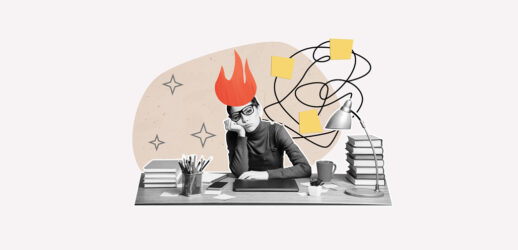Life is filled with decisions, big and small. As Travis Bradberry points out on themuse.com, the average person is confronted with approximately 70 decisions daily. These can range from what to prepare for breakfast (a small decision) to whether to relocate to a new city for a job (a major decision).
For some, decision-making comes easy. Others struggle, always questioning whether they have made the right choice. Below, Bradberry offers nine tips for better decision-making.
Eliminate Small Decisions by Transforming Them Into Routines. For some, deciding what to wear is an onerous chore. A routine habit of dress eliminates that daily decision. The technique works for Catholic school girls (who must wear uniforms), Steve Jobs (who dressed in a black turtleneck every day), Mark Zuckerberg (who always dons a hoodie) and Barack Obama (who wears either gray or blue suits.)
Make Key Decisions in the Morning. Address complex decisions in the morning, before decision fatigue sets in. A successful strategy for some is to make small decisions the night before, thus leaving their mornings free for more important contemplation. Such individuals might make their lunch or set out their outfit for the following day the night prior.
Consider Emotions. Decision making should be rational and objective, which becomes difficult when emotions get in the way. A bad mood can trigger a bad decision. Likewise, a good mood can cause a person to be overconfident or impulsive. Learn to recognize the role emotions play in decision making.
Rely on Your Moral Compass. Morals matter when making important decisions. When you find emotions pulling you astray, use your moral compass to guide you back to solid decision-making.
Sleep on It. Don’t be rash, especially when it comes to an important decision. Focus on acting rather than reacting. Taking some time to think carefully about a decision is wise, and often reveals new facets that previously may not have not been considered.
Seek Other Opinions. When leaning toward a decision, the natural tendency is to find support for it. This is called confirmation bias. Avoid this by specifically seeking advice from those willing to bring a different perspective.
Don’t Fall Prey to Analysis Paralysis. When analysis paralysis sets in, it becomes almost impossible to make a decision. While mulling over many different prospects is advisable, it is important to establish a deadline for reaching a final decision.
When in Doubt, Exercise. Stress produces cortisol, a chemical that triggers the fight-or-flight response in the body and interferes with one’s ability to think clearly. Exercise can bring everything back into balance. Some find that an exhilarating walk or run refreshes the brain and makes it easier to come to a decision.
Reflect on Previous Decisions. We all make mistakes; the key is to learn from them.





